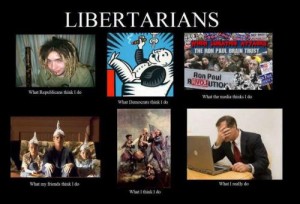What do John Stossel, Mona Charen, Gary Johnson, Pat Robertson, Cory Booker, and Richard Branson all have in common?
And let’s add voters from the states of Colorado and Washington to this list. So what unites this unusual collection of people?
They’ve all expressed doubts about the War on Drugs. And that’s a good thing.
As explained in this video, the Drug War has been a very costly failure. Indeed, it’s been such a boondoggle that we can now add John McCain to the list of those who think maybe it’s time to consider decriminalization.
Sen. John McCain (R-AZ) signaled Thursday that he’s receptive to legalizing pot. Tim Steller, a columnist for the Arizona Daily Star, reported over Twitter from a town hall in Tucson, Ariz. that McCain cited the “will of the people” in expressing an openness to legalization.
I’m glad Senator McCain is moving in the right direction, though I’m not sure I like his reasoning. The “will of the people” sometimes means two wolves and a sheep voting on what to have for lunch.
I much prefer the logical arguments of my Cato colleague Jeffrey Miron, who is a Senior Lecturer in economics at Harvard. Here’s some of what he recently wrote for the Huffington Post.
I have come to regard legalization as a policy no-brainer. Virtually all the effects would be positive, with minimal risks of significant negatives. An important piece of that research has been examination of drug policy in the Netherlands, where marijuana is virtually, although not quite technically, legal.
Jeff just visited Amsterdam and here’s what he found in that supposed den of iniquity.
Legalization advocates point to Amsterdam as evidence that legalization works, at least for marijuana. Legalization critics, such as former White House Drug Czar Gil Kerlikowske, believe instead that Dutch policy is flawed, generating crime and nuisance effects. Only first-hand observation could give me a clear view of which description is more accurate. …the Red Light District could not have felt safer or more normal. Yes, marijuana was widely available. …But nothing about the District felt unsafe, or suggested elevated crime or violence; I have felt less safe in many American and European cities. …The absence of violence is not surprising. Prohibition, not drug use, is the main reason for the association between violence and drugs, prostitution, gambling, or any banned good. In a legal market, participants resolve disputes with lawyers, courts, and arbitration. In an illegal market, they cannot use these methods and resort to violence instead. Thus the critical determinant of violence is whether an industry is legal, as the history of alcohol prohibition illustrates. That industry was violent during the 1920-1933 period, when the federal and many state governments banned alcohol, but not before or after. And if the government banned tobacco, or coffee, or ice cream, or any good with substantial demand and imperfect substitutes, a violent black market would arise.
There’s no evidence, by the way, that legalization means more drug use.
In 2009, the past year marijuana use rate was 11.3 percent in the United States but only 7.0 percent in the Netherlands. This does not prove that legalization lowers drug use; many other factors are at play. But these data hardly support the claim that prohibition has a material impact in reducing use. When we were toured Amsterdam on a canal barge, the guide commented that, “Despite legal drugs and prostitution, Amsterdam is a safe city.” My son, who has heard me rant about prohibition for years, looked up and quipped, “He should have said “Because drugs and prostitution are legal, right?” Exactly.
Sounds like Jeff’s done a good job as a father (and if I’m allowed to brag, I haven’t done a bad job either).
In closing, let me emphasize that libertarian does not mean libertine. My  Republican friends are wrong when they think libertarians are like the guy in the upper left of this poster.
Republican friends are wrong when they think libertarians are like the guy in the upper left of this poster.
You can support legalization without being a drug user or without thinking that it’s a good idea for other people to smoke pot. Heck, I’m probably one of a small minority of people in my generation to never try any drug.
But that doesn’t mean I want to squander lots of tax money and reduce human freedom to persecute others who are engaged in victimless activities. Especially when it means a massive increase in the power of government!
Let’s not forget, after all, that politicians used the Drug War as an excuse to enact reprehensible and costly laws on asset forfeiture and money laundering. One foolish policy leads to a couple of other misguided policies. That’s Mitchell’s Law on steroids!
